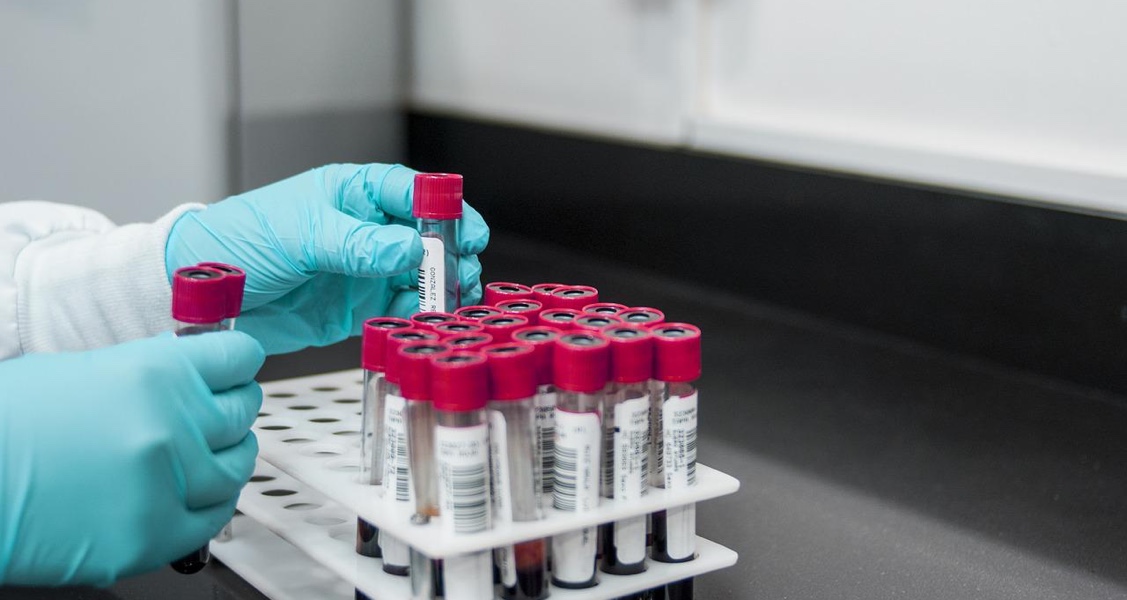Can a Simple Blood Test Detect Cancer in Dogs?
By: Ian Nicholson | Nov 28, 2024

Whether in humans or companion animals, a cancer diagnosis can be devastating. Modern medicine continually finds new screening methods for human cancers. We’re now discovering that some of those methods also work for our pets. A liquid biopsy requires only a simple blood test, but it could hold a vital key to the early detection of cancer in dogs.
How Does a Liquid Biopsy Screen for Cancer?
The National Cancer Institute explains that liquid biopsies test for cancer cells or tumor DNA fragments present in a patient’s blood. As potential blood tests for cancer, liquid biopsies can aid in detecting early-stage cancers, checking treatment progress, or finding out if cancer has returned.
Liquid biopsies only require small blood samples. Each sample must be spun twice at high speeds to separate the blood into individual components. Double centrifugation produces white blood cells and plasma that can yield DNA for testing.
Once the blood samples produce this DNA, lab technicians must sequence it. This process reveals the precise order of nucleic acids in a collection of DNA. Technicians use next-generation sequencing to process genetic information faster and analyze it for critical biological markers.
How Does Next-Generation Sequencing Work?
Next-generation sequencing typically includes four steps. The first is library preparation, which requires separating DNA into smaller fragments. Adapters added to a fragment collection help form its DNA library. The second step is parallel sequencing, which maps and orders the DNA fragments. Data analysis is the last step, comparing the sample with existing genetic information for various cancers.
How Have Researchers Tested Liquid Biopsies in Dogs?
Researchers tested liquid biopsies’ effectiveness in dogs from 2019 to 2021. Funded by PetDX, the Cancer Detection in Dogs project studied it as a non-invasive early detection method. The researchers published two reports: a proof-of-concept study in July 2021 and a clinical validation assessment in April 2022.
The CANDiD project studied over 1,100 dogs at 41 sites in six countries: Brazil, Canada, France, Hong Kong, the Netherlands, and the United States. Project researchers obtained blood samples from dogs diagnosed with cancer and dogs thought to be cancer-free. They performed liquid biopsies on plasma extracted from the blood samples.
When the researchers examined DNA from plasma, they used next-generation sequencing to look for signals of cancer in dogs. Liquid biopsy tests in the CANDiD studies had a 98.5% specificity rate. False positives occurred only 1.5% of the time.
What Canine Cancers Can Liquid Biopsies Detect?
The CANDiD project used liquid biopsies to test for multiple types of canine cancers. With this method, they were able to detect more than 40 specific kinds. Researchers observed an 85.4% combined detection rate in the three most aggressive cancers:
- Osteosarcoma, which affects the bones
- Lymphoma, impacting the lymphatic system
- Hemangiosarcoma, which develops in blood vessel linings
CANDiD researchers also looked at liquid biopsies’ efficacy in detecting malignant melanoma, mammary gland carcinoma, anal sac adenocarcinoma, soft tissue sarcoma, and mast cell tumors. These conditions, plus the three most aggressive cancers, comprise the eight most common canine cancers. Researchers discovered a 61.9% detection rate for these eight types combined.
Do Veterinarians Currently Use Liquid Biopsy Tests?
PetDX has recently made liquid biopsies available as a cancer test for dogs. Marketed as OncoK9, it’s a multicancer early detection system that can screen for 30 different canine cancers from a single blood sample. Tests are currently available by prescription for veterinary practices.
Blood-based liquid biopsies have been helpful in the world of human medicine, but they now can detect cancer in dogs. Early detection often improves a pet’s prognosis and treatment outcomes. As more advanced diagnostic and therapeutic methods such as cancer support mushrooms for dogs and cats cross over into veterinary medicine, they could help save more animals’ lives.
Always consult with your veterinarian before giving your pet any supplements to ensure their safety and suitability for your pet’s specific needs.


Disclaimer: healthcareforpets.com and its team of veterinarians and clinicians do not endorse any products, services, or recommended advice. All advice presented by our veterinarians, clinicians, tools, resources, etc is not meant to replace a regular physical exam and consultation with your primary veterinarian or other clinicians. We always encourage you to seek medical advice from your regular veterinarian.

